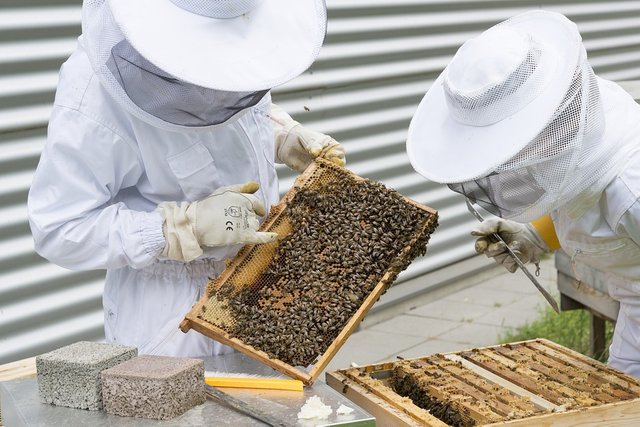Honey is a wonderful blessing given by Allah to human beings. The health benefits and healing properties of honey are invaluable. The Prophet (peace be upon him) called it ‘Khairuddawa’ or herbal medicine. The history of bee keeping is found in the inscriptions of the 6th millennium BC. In the Babylonian Empire, at the end of the 4th millennium BC and the beginning of the 3rd millennium BC, bees were kept in large numbers. Although the history of beekeeping is very old, the first systematic beekeeping was started in the United States in 1838. Later, in 1840, he started scientific beekeeping called 'Mosse Quinby'. In 1851, the modern method of beekeeping was started by a scientist named Langstroth who is called the father of modern beekeeping. Modern bee keeping activities started in India in 183 AD.
In Bangladesh, Akhtar Hamid Khan started beekeeping for the first time in 1971 at the Rural Development Academy in Comilla. Then in 1973 BSCIC took the first beekeeping initiative in Satkhira and to this day BSCIC's efforts have continued and spread all over the country. The Department of Agricultural Extension was later associated with the BSIC efforts in the 70's and is now taking major initiatives to expand beekeeping.
Possibility of beekeeping in Bangladesh
Beekeeping can play an important role in economic development and environmental protection. The famous scientist Einstein explained the benefits of bees, saying that if the bee disappeared from the surface of the globe, then the man would only have four years to live. ” This statement has been made considering the immense role of honey and bees in crop production and human welfare. Honey has been used in Bangladesh since ancient times to cure various diseases. Moreover, honey is used in making various sweets and delicacies. Beeswax is used to make various products such as cosmetics, candles, etc. The landless and marginalized people of this country can become self-reliant through rearing. It is even possible to earn a lot of foreign exchange by exporting honey abroad. Bangladesh honey is already being exported to India and Japan, which may extend to Europe and other developed countries. Indian companies are making huge profits by purchasing unrefined honey from Bangladesh, refining it and re-exporting it to Bangladesh. In addition, some domestic companies are purchasing honey directly from beekeepers and marketing it in the country / abroad through refining. There is immense potential for honey cultivation in our country. Sujla Sufla is the season of Bangladesh, which has a wide area of crop fields, trees, vegetables and flower gardens. One or another flower blooms here in almost every season. Bees can extract honey from these places almost all the year round. At present about 2500 beekeepers are producing honey commercially and about 6000 tons of honey is being produced annually. With proper planning and modern methods, it is possible to increase the production of honey to one lakh tonnes. The number of bees and other pollinating insects living in nature is declining due to indiscriminate use of pesticides, change in land use, industrialization and other reasons. As a result, it is having a negative impact on agricultural production, quality seed production and conservation of biodiversity. Encouraging beekeepers to improve beekeeping will improve the situation and even save many species of plants from extinction.
